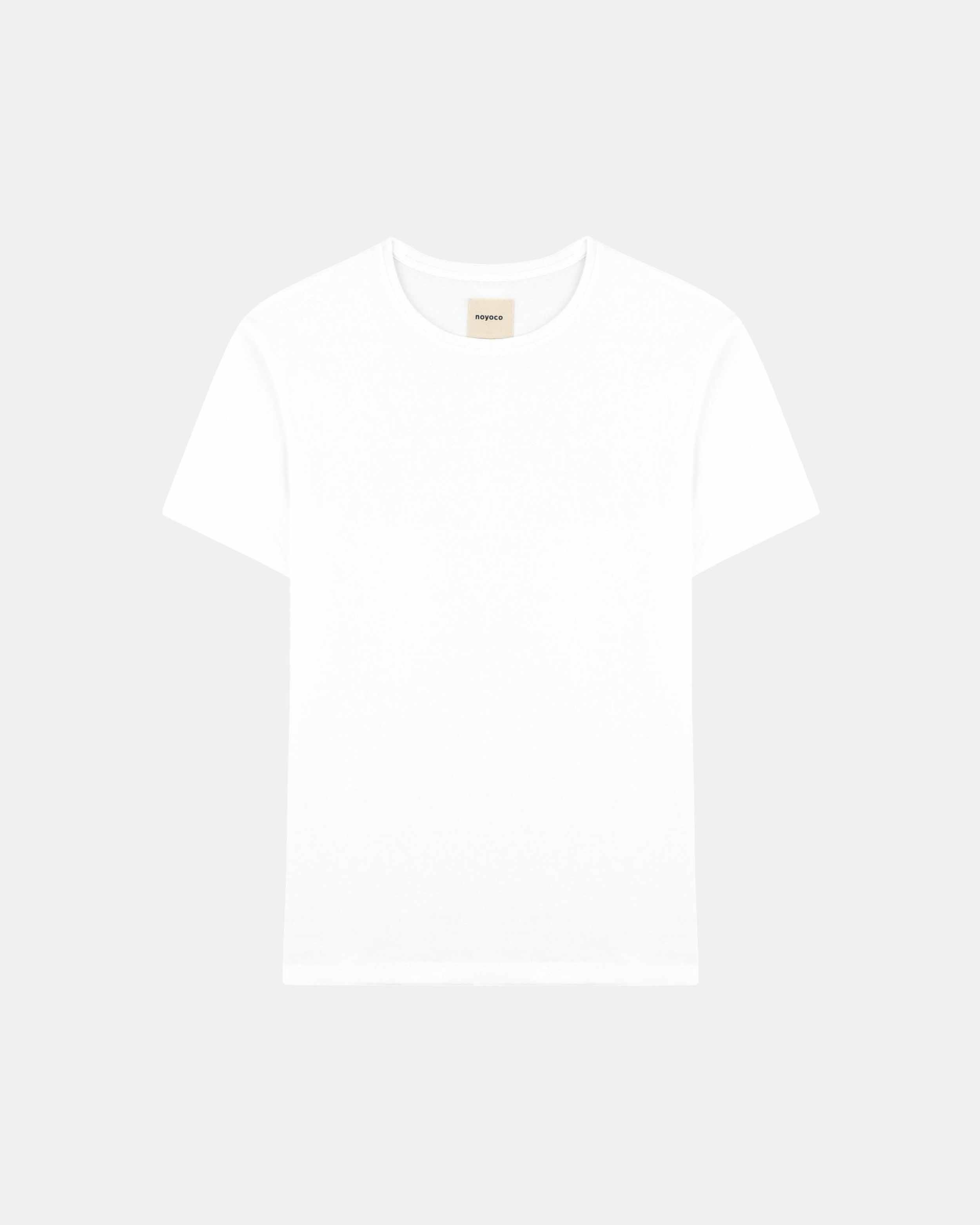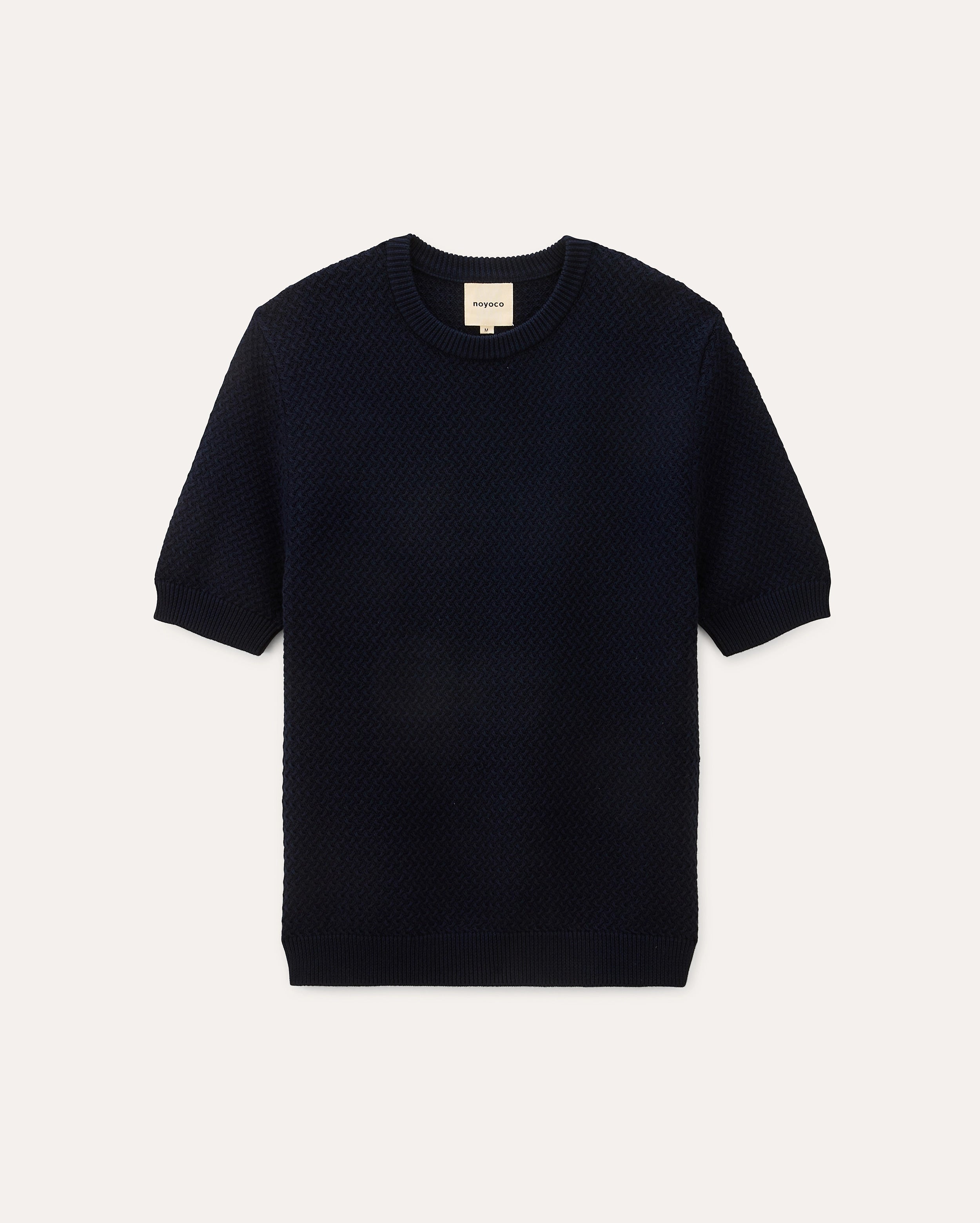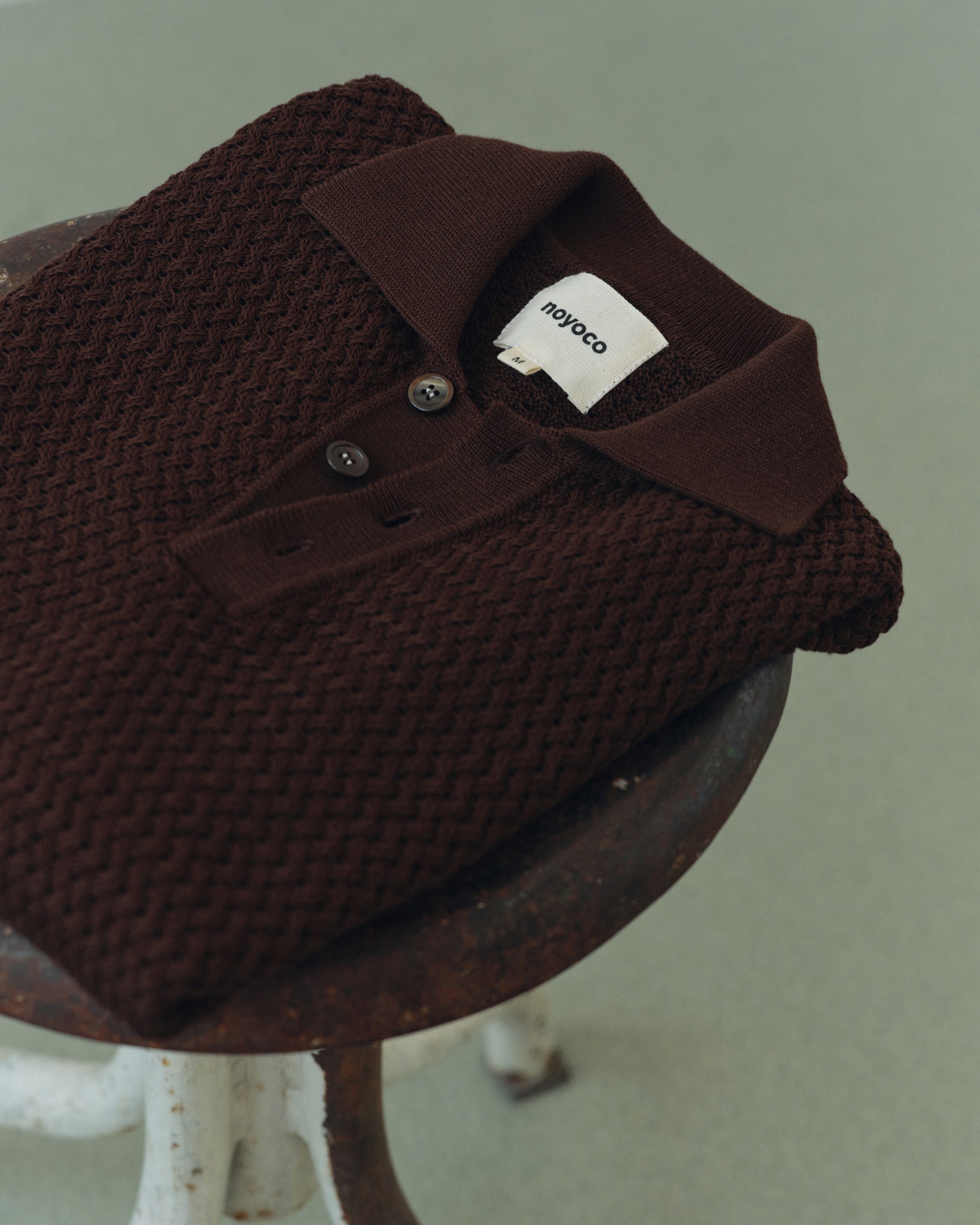The very first Clean Denim
Discover the very first noyoco jeans, or as we prefer to call them: Clean Denim. After more than a year of work, we wanted to offer you this timeless garment made with the lowest possible environmental impact. A 100% cotton canvas, 83% of which is recycled and GRS (Global Recycle Standard) certified, dyed using an electrochemical process without products from the oil industry. Washing combines two techniques to consume as little water as possible while minimizing CO2 emissions. Noyoco Clean Denim is entirely sourced and manufactured in Europe. Price: 145€
Clean Denim in all its aspects
In the textile industry, jeans are one of the most polluting garments in the world. We have paid particular attention to each stage of manufacturing ours in order to limit its environmental impact as much as possible.
We invite you to discover everything behind the scenes from A to Z of Clean Denim noyoco.
Yes to denim but make it clean!
Step 1: the thread that makes up the canvas
The Clean Denim epic begins in Italy where our partners, combining know-how and commitment in their practices and sourcing, were able to weave an impeccable cotton thread. Made up of 83% recycled cotton from third-party fabric scraps and 17% organic cotton, the thread that makes up the fabric of Clean Denim, in addition to being resistant and environmentally friendly, is circular: nothing nothing is lost, nothing is created, everything is transformed.
Step 2: the perfect dye
Dyeing is good, without hydrosulphites is better! The Clean Denim yarn is dyed by our same partners in Italy who woven it using Smart Indigo technology.
Unlike classic dyes based on PVA, a polymer from the petroleum industry. Smart Indigo technology is an electrochemical process using only pigment, water, electricity and caustic soda (NaOH). It allows better concentration of the color, which makes the process less water intensive while facilitating its recycling.
You will have noticed: we keep it local! The yarn is dyed and the canvas is woven in the same place. Generally, this is not the case, and this allows us to emit 6 times less CO2 compared to the “traditional” process.
Step 3: fixing the dye
Dying a fabric is generally not enough, you also need to be able to fix the color so that the garment lasts over time. Far from the usual micro-plastics, we used food waste, yes you read correctly. Still in Italy, our partners use the NaturalReco technique to fix the dye using orange peels. Surprising isn't it?
Step 4: from canvas to denim
Once the threads are dyed and the canvas is woven, Clean Denim takes shape in Portugal, north of Porto. Our two models Dunn and Denver, dedicated to women and men respectively, are manufactured by an expert family business whose know-how dates back to 1978 and which is now equipped with state-of-the-art machines.
Step 5: the famous washout
Washing is one of the most polluting steps in the manufacturing process for traditional denim jeans. We took up the challenge of innovating and making it as environmentally friendly as possible by combining two techniques: Ozone & E-flow.
Ozone is a naturally produced gas composed of three oxygen atoms that gently bleaches the indigo color. This technique requires no water or chemicals and does not release greenhouse gases.
E-flow is a washing process using air microbubbles to transport water and bleaching enzymes. The precision of this technique avoids the use of toxic products and wasted water.
Last step: supplies
To the end, all the elements of Clean Denim are thought through and developed without failing in our mission to offer the most environmentally friendly jeans possible.
100% natural jacron
The jacron is this element sewn at the back of the jeans generally made of leather where the name of the brand is engraved, it is an integral part of the jeans. At noyoco, the Clean Denim label is composed of cellulose and gum certified by Oeko-tex and FSC (Forest Stewardship Council), the latter label guaranteeing sustainable forest management. Jacron is then dyed from walnut shells.
The buttonhole
The Clean Denim buttons are made of unplated aluminum. It is a material that consumes less water, electricity, chemicals and waste compared to a classic plated brass button. Bonus: it does not contain nickel, a component whose operation is very polluting and which is suspected of harming health.
The bottom of the pockets
The lining of the jeans is made from GOTS certified organic cotton.
the imprint of Clean Denim
In conclusion, the very first noyoco jeans were thought out and developed from A to Z keeping in mind this mission of wanting to innovate and offer a timeless wardrobe item with the lowest possible environmental footprint. In 2021, cotton canvas and the washing of a single pair of jeans consumed 1982 liters of water, compared to only 350 liters for our Clean Denim. Going through weaving, dyeing, canvas assembly, washing and supplies, noyoco Clean Denim is part of a strong approach aimed at making things happen.






























